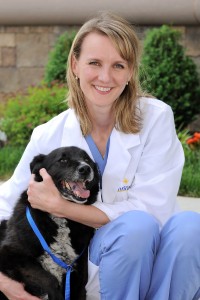-
Recent Posts
Archives
- October 2022
- August 2022
- May 2022
- March 2022
- January 2022
- December 2021
- September 2021
- July 2021
- June 2021
- May 2021
- April 2021
- February 2021
- January 2021
- November 2020
- October 2020
- September 2020
- June 2020
- April 2020
- March 2020
- February 2020
- January 2020
- December 2019
- November 2019
- October 2019
- September 2019
- June 2019
- March 2019
- February 2019
- January 2019
- December 2018
- November 2018
- October 2018
- August 2018
- July 2018
- June 2018
- May 2018
- April 2018
- March 2018
- February 2018
- January 2018
- December 2017
- November 2017
- October 2017
- September 2017
- August 2017
- July 2017
- June 2017
- May 2017
- April 2017
- March 2017
- February 2017
- January 2017
- December 2016
- November 2016
- August 2016
- July 2016
- June 2016
- May 2016
- April 2016
- March 2016
- February 2016
- January 2016
- December 2015
- November 2015
- October 2015
- September 2015
- August 2015
- July 2015
- June 2015
- May 2015
- April 2015
- March 2015
- December 2014
- June 2014
- May 2014
- April 2014
- November 2013
- September 2013
- August 2013
- July 2013
- June 2013
- May 2013
- March 2013
- January 2013
- November 2012
- October 2012
- July 2012
- December 2011
- November 2011
- October 2011
- September 2011
- August 2011
- July 2011
- June 2011
- May 2011
- April 2011
- March 2011
- February 2011
- January 2011
- December 2010
- November 2010
Categories
Ask the Vet?
Got a question about your pet? Experts from NorthStar VETS 24-hour emergency veterinary center in Robbinsville are ready to answer readers’ questions. Send your questions to askthevet@mercerspace.com.
Q: My dog’s eyes are suddenly cloudy. Should I be concerned?
A: Nuclear sclerosis, or hardening of the lens as a dog ages, is a normal aging change in any dog over the age of six. Eyes appear slightly “milky” in the area of the pupil. This gradual change does not affect vision. If the increase in cloudiness is associated with redness, discharge, squinting or a change in vision, a veterinarian should evaluate
him as soon as possible. Many conditions can increase cloudiness in the eyes: normal aging change, glaucoma, cataract, corneal disease, intraocular inflammation, dry eye. Some can cause permanent vision change, discomfort or even loss of the eye. It is important to determine the cause of the cloudiness and what area of the eye it is affecting. More benign conditions, such as allergic conjunctivitis, can cause redness or some mild discharge, but are not associated with increased cloudiness. Your family veterinarian can advise if your pet should be evaluated or referred for examination by a ophthalmologist.
–Kristina Vygantas, DVM, Diplomate,
of Amercian College of Veterinary Opthalmologists
Q: I am a pet sitter and I have a client whose cat recently started defecating outside of the litter box—on the couch,rug, and worse her bed. He is on behavioral meds but it does not seem to help. Any suggestions or reasons as to why he is doing this?
A: While inappropriate defecation can be a behavioral problem, it can also be a sign ofunderlying illness. The best thing to do is to discuss this with a family veterinarian, have a complete physical exam, complete blood work and then do radiographs or abdominal ultrasound if indicated. If an underlying disease has been ruled out, consultation with a behaviorist may be considered. There may be management strategies at home you can try in addition to the medication she is on that would help.
–Kimberly Hammer, VMD, DACVIM
Q: How can I make sure my dog has healthy teeth and gums?
A. Start early. Brushing is the single most important thing you can do to prevent tooth loss due to periodontal disease. If your pet is reluctant to brush, contact your local veterinary dentist, veterinarian or veterinary technician
to get some tips and tricks to ensure success.
While wearing disposable gloves, gently massage your pet’s lips, face and gums at a young age to allow him or her to become comfortable with daily oral home care. Use a soft-bristled toothbrush soaked in warm water in a circular motion at the gum line to brush off plaque, which is a combination of saliva, food particles and bacteria. Mineralization of plaque requires only about 24 hours, so brushing should really be done daily. Mineralized plaque (tartar) cannot be brushed off. Since tartar is an irregular surface, it encourages additional plaque accumulation, and the result is inflammation
of the gums and within the sulcus (the normal trough around each tooth). Inflammation caused by plaque results in loss of attachment and formation of periodontal pockets and bone loss. Eventually, teeth become mobile or infected beyond the point of salvage. There are other options if brushing just won’t work for you. See the Veterinary Oral Health Council website (vohc.org) for a list of foods, treats and water additives that have been proven to prevent plaque and/or calculus accumulation. Dry kibble is a better option than canned food, which adheres to the teeth and increases plaque buildup.
Brushing and other plaque-preventing tools will help to minimize the number of professional dental cleanings that your pet will need, but the time will come when a subgingival (under the gumline) cleaning is necessary. Maintaining a healthy mouth not only helps prevent dental pain, but recent studies suggest oral care may help prevent problems at distant sites of the body. A healthy mouth means a healthy pet!
–John Lewis, VMD, FAVD, DAVDC
NorthStar VETS is a veterinary specialty and referral hospital located at 315 Robbinsville-Allentown Rd., Robbinsville. To learn more about NorthStar VETS’ full range of specialty veterinary expertise, call (609) 259-8300 or visit northstarvets.com.
This entry was posted in Uncategorized and tagged 24 hour emergency vet, 24 hour vet emergency, 24 hour vet hospital, 24 hour vets, 24 vet hospital, allentown, animal emergency, ask the vet, avian, brick, clarksburg, dog emergency, exotics, freehold, hamilton, hospital, jackson, lakewood, Mercer County, millstone, Monmouth County, New Jersey, New Jersey Dog, nj, NorthStar VETS, Ocean County, pet emergency, preparedness, princeton, robbinsville, toms river, Veterinarians. Bookmark the permalink.








Leave a Reply